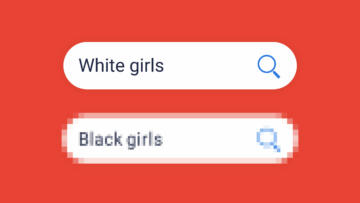
Show Your WorkGoogle the Giant
How We Analyzed Google’s Search Results
Novel categorizations and “staining” techniques uncovered how much space on the search results page Google dedicates to itself
Challenging technology to serve the public good.

Leon Yin translates story ideas into testable hypotheses—the cornerstone of our journalism. He builds bespoke datasets and uses interdisciplinary methods to report on technology. Leon left The Markup in July 2023.
His reporting of Google search’s self-referential results was cited in the opening remarks of a congressional hearing on tech giants and antitrust. In 2022, he won a Gerald Loeb Award for Personal Finance and Consumer Reporting with Adrianne Jeffries for their series, “Amazon’s Advantage.”
Before joining The Markup, he was a research scientist at NYU’s Center for Social Media and Politics, a research affiliate at the Data & Society Research Institute, and a software engineer at NASA.

Show Your WorkGoogle the Giant
Novel categorizations and “staining” techniques uncovered how much space on the search results page Google dedicates to itself

Google the Giant
The search engine dedicated almost half of the first page of results in our test to its own products, which dominated the coveted top of the page

Google the Giant
Searching Google’s ad buying portal for “Black girls” returned hundreds of terms leading to “adult content”

Google the Giant
Google shuffled mass emails about racial justice into the marketing tab in our test, mirroring its categorization of political emails

Google the Giant
Google’s black box algorithm controls which political emails land in your main inbox. For 2020 presidential candidates, the differences are stark.

Show Your WorkGoogle the Giant
We conducted an experiment with a new email address to try to figure out how Gmail's sorting algorithm worked without user input
Page 5 of 5